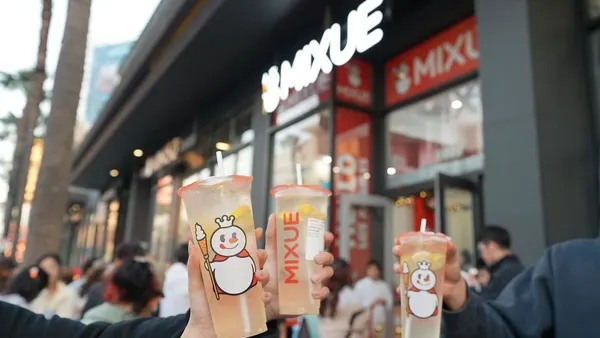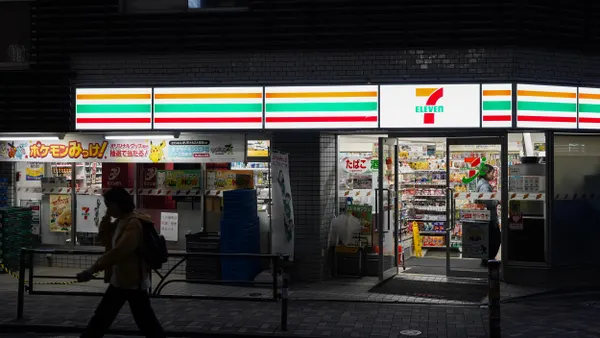Dive Brief:
- Yum Brands has begun the necessary work to join the Science-Based Targets Initiative (SBTi), according to Jon Hixson, vice president for global government affairs and sustainability for Yum.
- If Yum, the parent company of Taco Bell, Pizza Hut and KFC, ultimately makes a commitment and sets emissions reduction targets in accordance with SBTi standards, it would become the second restaurant group do so based on current commitments. McDonald's was the first such group to commit, pledging to cut greenhouse gas emissions at McDonald’s restaurants and offices by 36% by 2030 from a 2015 base year and cut emissions intensity per metric ton of food and packaging across its supply chain by 31% by 2030 from 2015 levels.
- "We are in the initial stages of trying to set science-based targets, which are a major and complex challenge for an organization of our size and structure," Hixson told Supply Chain Dive.
Dive Insight:
Hixson described the work currently going into preparing for some form of carbon emissions commitment as a "heavy lift" Monday during a panel discussion at the Responsible Business Summit in Brooklyn, New York. Though the company has participated in the Carbon Disclosure Project since 2010, turning emissions data into actionable reduction strategies offers a new level of complexity. With roughly 42,000 restaurants in 140 countries, it's easy to see why.
The SBTi has two major stages. Companies submit a letter of commitment, pledging that they will set emissions reduction targets "in line with the level of decarbonization required to keep global temperature increase below 2 degrees Celsius compared to pre-industrial temperatures," as described by the initiative. In the second stage, companies have 24 months to develop, submit for approval and publicize these targets. So far, 536 companies have committed to setting science-based targets, and 186 have approved targets.
Beyond restaurants, a dozen multinational hotel chains have joined the initiative, along with food service giants Sodexo and Compass Group. Four hospitality groups have set targets.
In terms of food production, the list is much longer: AB InBev, Bacardi, Carlsberg, Coca Cola (Europe only), Danone, Diageo, Farmer Bros., General Mills, Kellogg, Mars, Nestle, PepsiCo, Tyson and more have committed to the initiative and set targets. Another 25 or so have committed but not yet set targets.
What makes this process significantly more difficult for multinational restaurant groups than equivalent food companies, in many if not most cases, is the way such businesses are structured. Most multinational restaurant groups act licensors and franchisors, but they rarely own or operate establishments.
"One thing Yum really prides itself on is building local capacity. When you think of the [UN Sustainable Development Goals], we probably do more on global poultry development than any other company I know of, and we really do work to try to have local supply chains, particularly for poultry throughout KFC operations. So all of that can lead to governance challenges," Hixson said on the panel.
Hixson said Yum controls the intellectual property, marketing and branding and food safety for its franchisees, but procurement is a much more complicated picture. Some regions or franchisees procure jointly with Yum, while others do so almost completely independently.
That procurement patchwork makes meaningfully measuring and then working to reduce procurement-related supply chain emissions a big job. Furthermore, though procurement is a large part of any restaurant group's carbon emissions, SBTi targets generally go beyond sourcing to transportation, energy use, packaging and beyond.
With thousands of franchisees on a global scale, explained Hixson, no change is a small change. "Whenever we make a decision, it needs to work from Virginia to Vietnam," he said.
Hixson told Supply Chain Dive that he estimates it will take the company roughly one year to develop the right goals and build internal consensus around reaching them.












